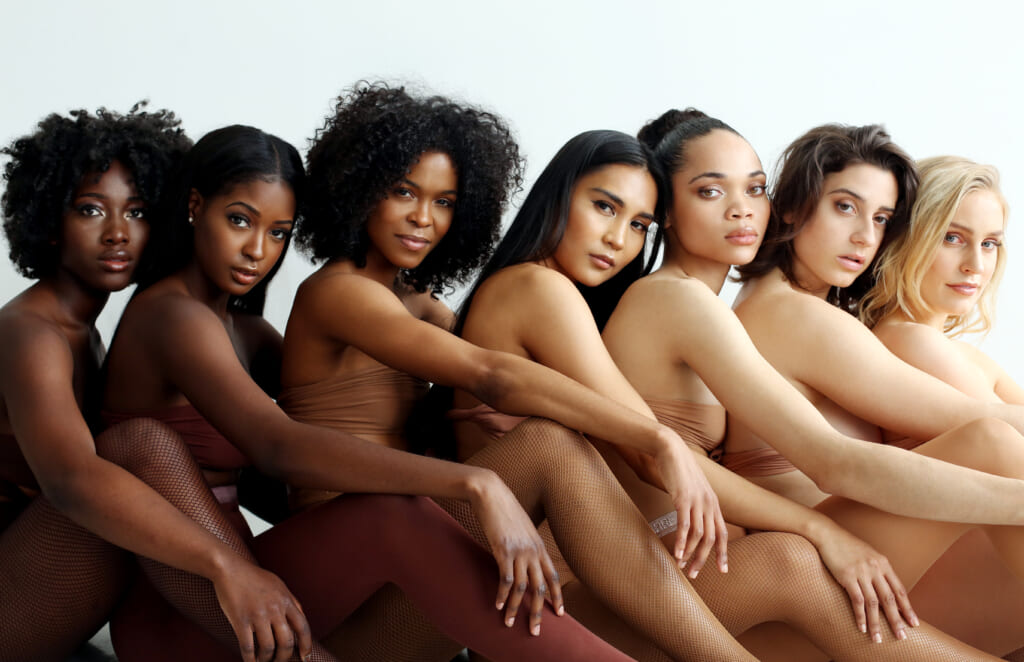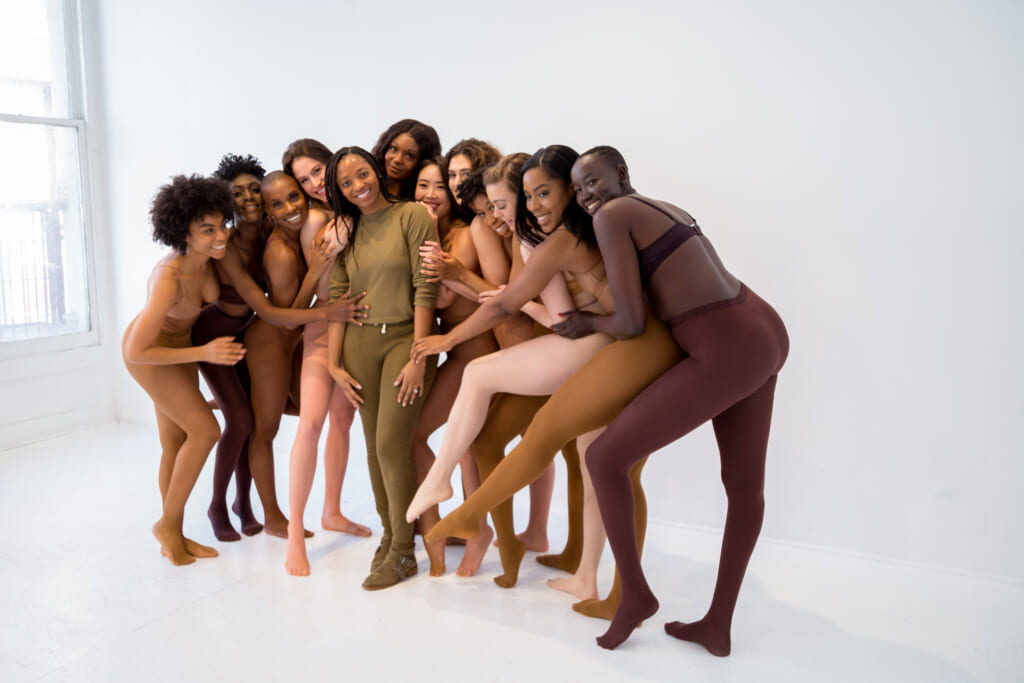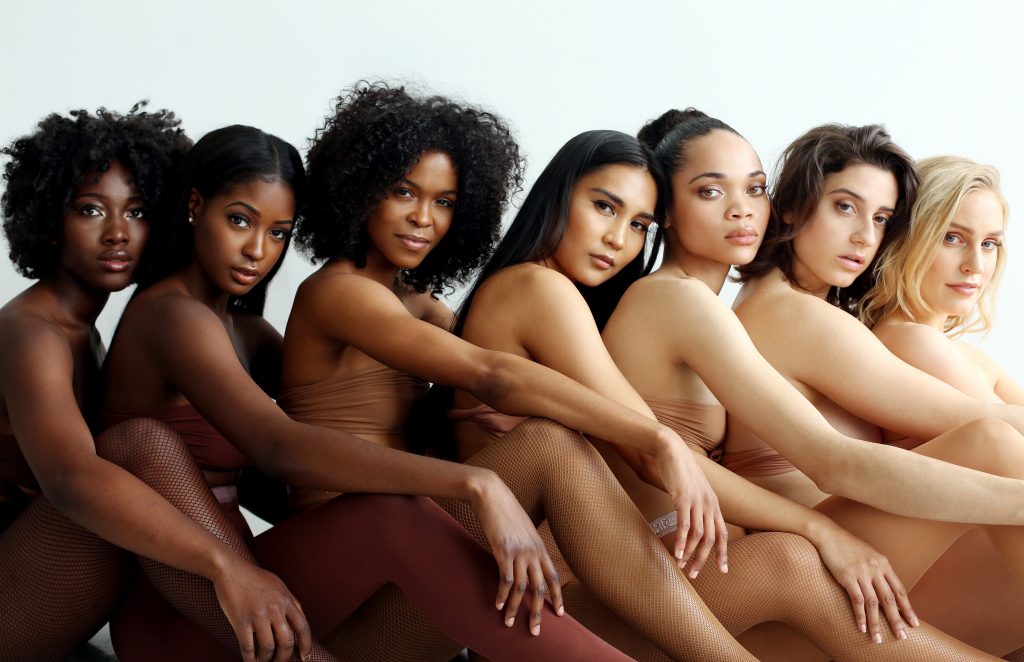This former NY Knicks dancer turned frustration into a full-fledged business with Nude Barre
Erin Carpenter recently closed a $1.4 million round and was funded by a long time customer—superstar Serena Williams
Erin Carpenter turned frustration into a full fledged business.
The Founder and CEO of Nude Barre came up with the idea for her company, which sells tights, intimates and face masks, from her experience in the dance industry. Nude undergarments and tights were often requirements of her uniform and back in 2009, many hosiery brands made a limited shade of nudes—which wasn’t inclusive to the array of melanin that represents Black women.
Read More: Serena Williams on money management: ‘When you work hard, you reap the benefits’
Instead of spending time practicing her craft, Carpenter was committing hours to dyeing her tights and shoes. What started as a business she was “selling one by one” to people she knew, Nude Barre has blossomed into a company that is loved by celebs. Some of its Hollywood fans include Wendy Williams, Laverne Cox, and Serena Williams—who recently infused the concert-trained dancer with a $1.4 million investment to catapult her business to the next level.
The Grio spoke with Carpenter who revealed what it’s like partnering with Serena Ventures, the struggles of acquiring funding as a Black woman, and advice for fellow Black women looking for funding opportunities.
At the time of this interview, Carpenter was preparing for her first official board meeting. A complete 180 from the woman who was essentially running an entire business by herself for the past eleven years. “If you were commenting on social media, you were definitely hearing from me. I was writing you back,” Carpenter explains.

The entrepreneur started her professional career as a classically trained dancer before pivoting to commercials, eventually becoming a New York Knicks City dancer. However, the artist has always had business in her blood.
“I have a BFA in ballet. I did minor in business management. I always knew I wanted to be an entrepreneur, but I honestly did not imagine it would be in the apparel space or the fashion category. I always assumed I would start a business that was in the dance category—like running a dance school or an agency of some sort,” Carpenter dishes.
However, her entrepreneurial direction was swayed when she finally got frustrated with consistently being required to have nude garments, but not having any in her skin tone available— a common industry problem that she soon discovered other Black women were facing as well.
Carpenter reveals, “It just seemed like this was just a big issue that dancers were always complaining about privately, but still manufacturers weren’t making better options for them. As I talked to women in other industries that weren’t dancers or athletes they were also having the same secret complaint, as well as beige being the nude that was available, obviously [companies] didn’t cater to diverse skin tones.”
The business started to gain visibility after she wrote Williams a letter and sent her some tights, which the gossip queen began wearing on her show and tagging on her website, now has flourished into an apparel offering.
However, this is not an overnight success story. Carpenter started her business with $3,000 saved from doing commercials. While one would applaud her tenacity, it actually highlights a bigger problem within the investing community. According to Digital Undivided’s 2018 report, only .06% of all venture funding has gone to Black women since 2009, despite this demographic being the fastest-growing group of entrepreneurs.

Carpenter recollects, almost in disbelief, “For consumer goods products that’s like, how do you even do that? What product are you even buying? You know what I mean…to sell and put out in the market. Obviously, I had to be creative and make that happen. But ultimately, it was really hard to show whatever amount of traction that was really compelling for VCs; to show that proof of concept to make it interesting enough for the check.”
There is a barrier to entry within the VC pipeline for many Black and Brown founders, something that Carpenter experienced herself. The community consists primarily of White men, who not surprisingly, invest in other White men or people that are in their direct network.
Carpenter explains, “They wouldn’t always get what my product is doing and what it solved. Their perspective, their lived experience is so different. So not understanding the skin tone, the issue, and how impactful that is, not just from a product but even from feeding into the colorism pipeline, feeding into the systemic racism pipeline of this color skin is better and that’s why it’s marketed. But that wasn’t something that was understandable.”
They may not have understood, but another Black woman did, tennis phenom Williams. In 2019, Carpenter entered the Bumble x Serena Ventures pitch competition, which led her to receive her first-ever outside funding.
Carpenter recollects, “Serena really did buy into and believe in what I’m trying to build at Nude Barre. Her as a customer and having the lived experience, she understood it, she got it and wanted to get behind it.”
Carpenter shares that one of the most advantageous parts of being funded by Sereva Ventures is “that they really advocate for women.” She adds, “they really are trying hard to push the conversation forward about how poor the statistics are of women, especially Black women or women of color, being funded. They are really working to fill that gap.”
As Carpenter reflects on her entrepreneurial journey, she shares advice for other Black women and Black entrepreneurs in general, who are interested in taking their business to the next level.

She reveals, “I wish I would have considered an accelerator a handful of years earlier. I think that would have expedited the fundraising process. The hard part is getting into these accelerators and having the traction to get in. One piece of advice would be utilizing accelerators if you are looking for funding to help you close that round.”
She applied and was accepted into LAUNCH, the prestigious accelerator ran by entrepreneur and angel investor Jason Calacanis. She was introduced to Calacanis by Crystal Etienne, the founder of Ruby Love.
Carpenter states, “The founder advice I always give is being humble enough to ask for help.” She spoke with Etienne and wanted to know how she scaled her business and Etienne, in turn, saw the potential in Carpenter and made the life-changing introductions. How was Carpenter keeping Nude Barre afloat before she received funding?
She emphasizes, “I didn’t quit my ‘day job’ — I taught barre fitness classes about 15 to 20 hours a week, while I was running Nude Barre, bootstrapping it, which obviously took a lot of hard work. I didn’t quit my day job until I got to the part where I could.” In addition to keeping your main source of income, Carpenter emphasizes this fact about fundraising— “It’s a big numbers game. One thing that Jason really pushed in his program is that it’s okay that you are going to pitch 100 people and get a bunch of ‘no’s.’ You just need one person to give you a yes. And that’s kinda the snowball effect from there.”
Her momentum has only continued to increase and her business is burgeoning. Carpenter is currently making key hires, expanding her product line with more items to come. However, her focus still remains the same: serving women.
Read More: Citi announced that it will be investing in 3 Black-owned businesses
As we wrap our conversation, she expresses, “Women, especially Black women, when it comes to products often times they are going through these physical labors to make products work for them. In my scenario, dyeing my tights and putting makeup foundation on my shoes. There’s that physical labor, but there’s also that emotional labor that comes hand and hand.”
Carpenter has been doing the work for Black women to feel seen before “inclusion” was a buzzword. I hear the passion in her voice, “We really want women to feel celebrated in our products in a real way.” You can tell she’s coming from an authentic place. C
Carpenter has another call, but before she hangs up she expresses that self-love is revolutionary in and of itself. Nude Barre is more than just flesh-toned intimates, the brand serves physical manifestation to women know they are seen and understood.
Have you subscribed to theGrio’s new podcast “Dear Culture”? Download our newest episodes now!
TheGrio is now on Apple TV, Amazon Fire, and Roku. Download theGrio today!
The post This former NY Knicks dancer turned frustration into a full-fledged business with Nude Barre appeared first on TheGrio.

